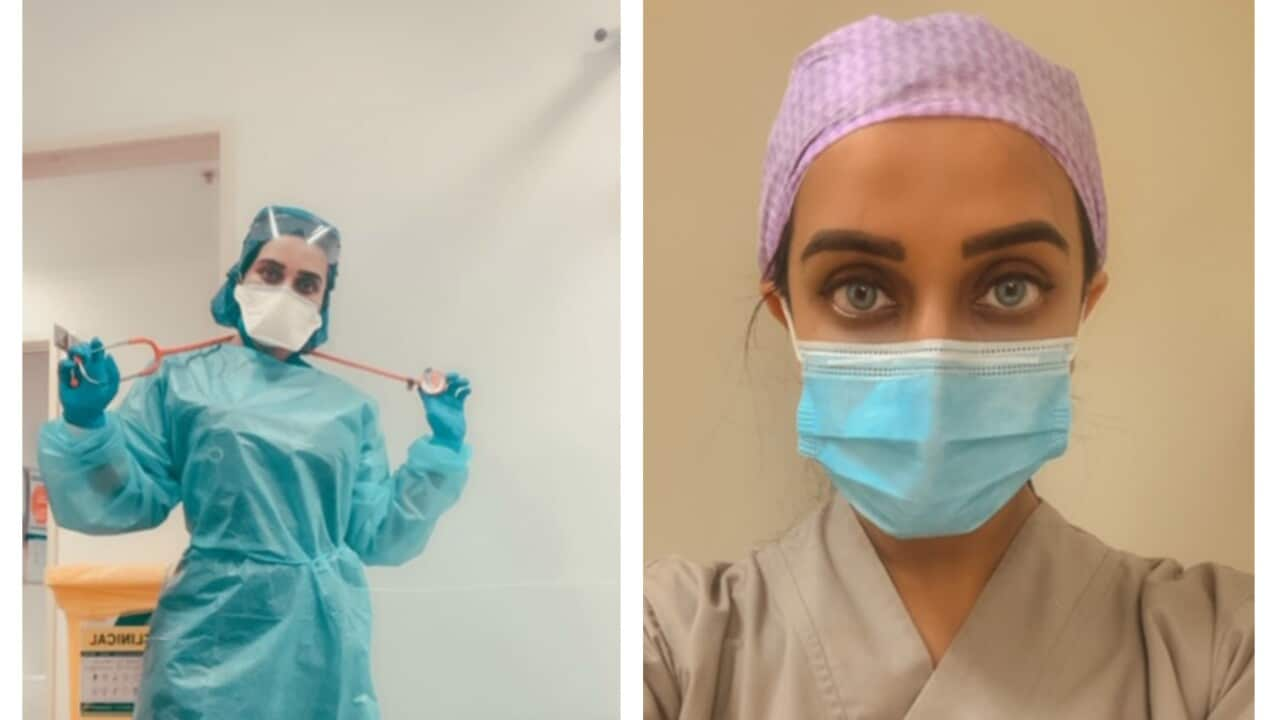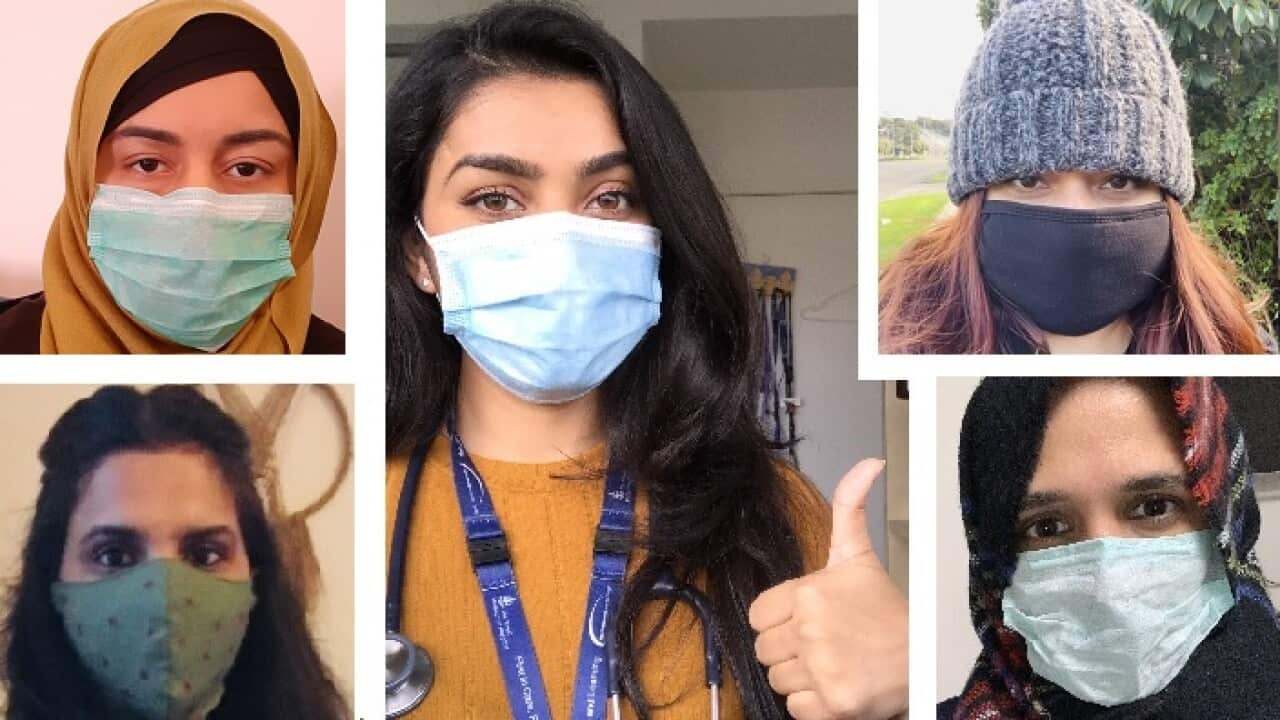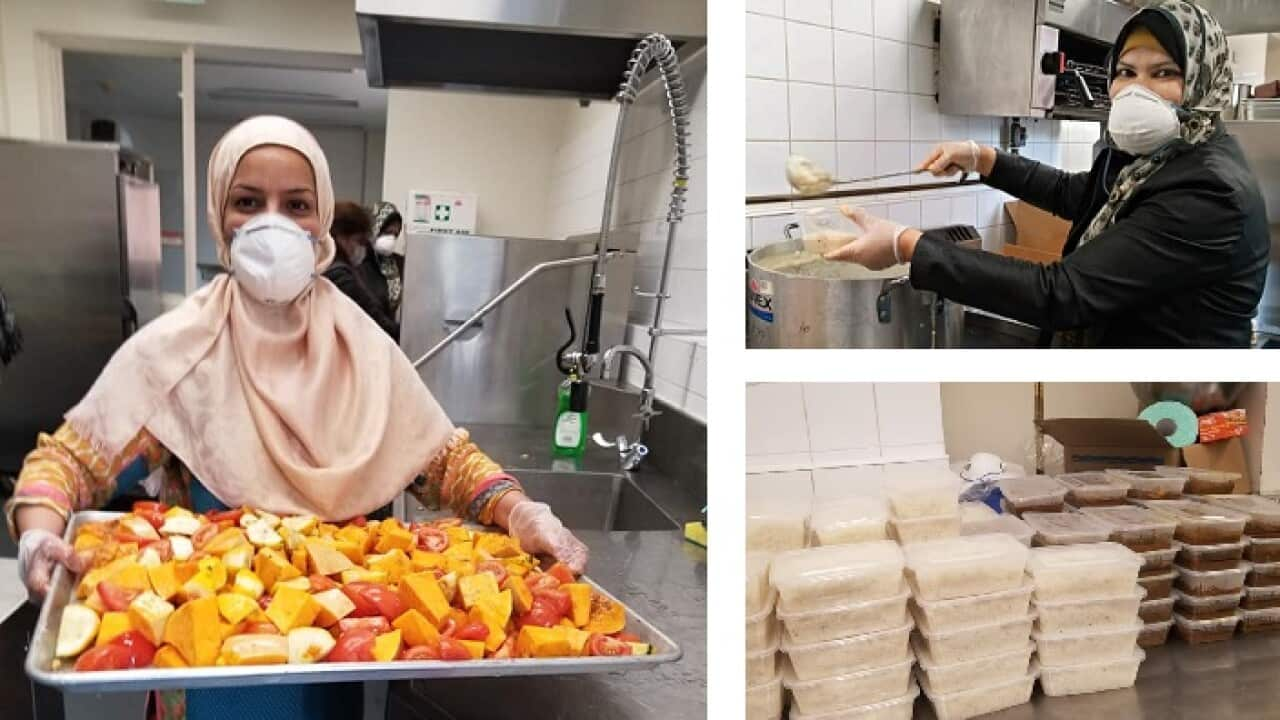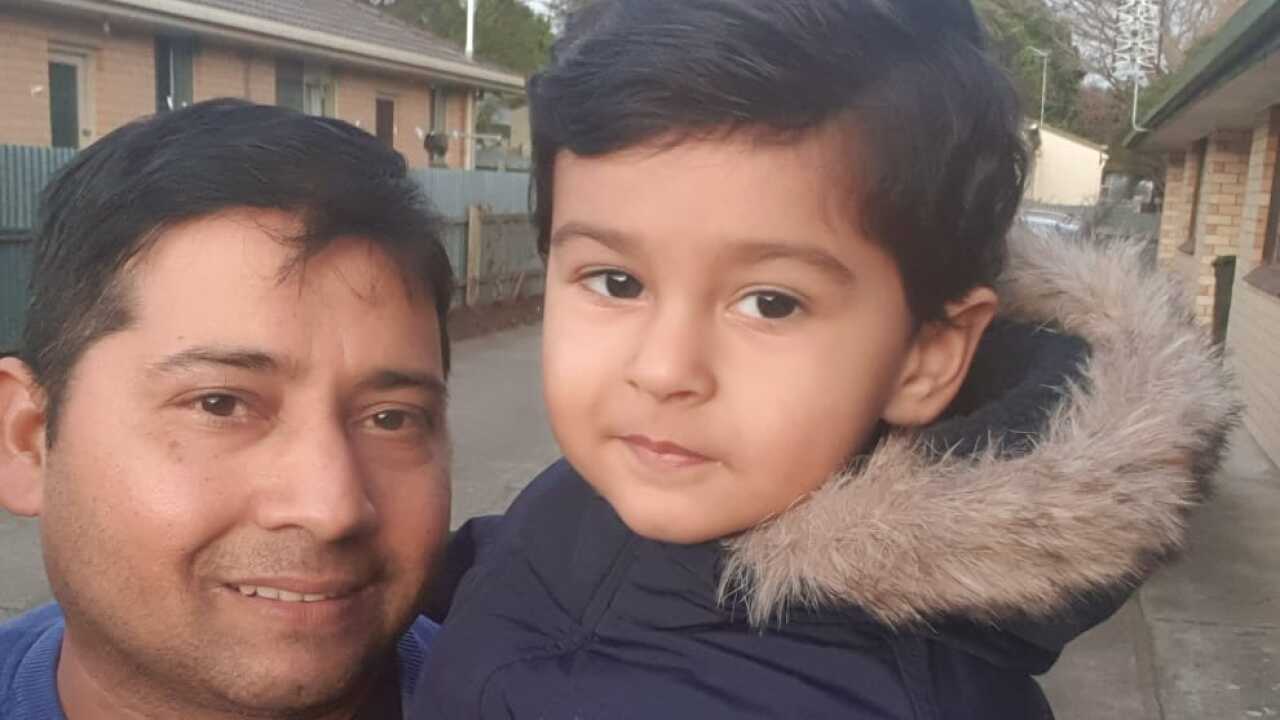After expressing her interest in helping out at the Northern and Austin Hospitals, Aisha was contacted in March when extra senior doctors were needed to deal with the pandemic.
With rising numbers of coronavirus cases in Victoria and many healthcare professionals contracting the virus, Aisha was asked to work as a senior medical registrar.
Highlights
- Frontline healthcare worker shares her experience working in COVID wards.
- Dr Aisha Khalid urges the community to take the virus seriously.
- Stage 4 restrictions are now in place for Metropolitan Melbourne.
“I am currently running the COVID ward which looks after suspected and positive patients,” she said.
The wearing of PPE - including N95 masks, gloves, hairnets and facial shields - is mandatory. Aisha told SBS Urdu that she has been working 14-hour shifts every day and that it gets extremely hot with that many layers of PPE on.
“You can’t touch your mask, you can’t touch your face, you can’t touch your body at all while you are running from one room to another looking after positive patients,” said Aisha.
During this time we can’t eat, drink, go to the toilet or use our phone. It’s a very stressful environment.
“We don’t know when and where we might pick up the virus, it could be airborne or by touching a surface, so it gets very hard for the doctors.
“This creates a vicious cycle of being scared, tired and overworked,” she added.

Aisha Khalid, Senior Medical Registrar working at the COVID wards in Melbourne. Source: Supplied
Rising COVID cases
As Victoria continues to record new cases in the hundreds each day, the state's total now reaches over 13,000.
This includes more than 1,000 healthcare professionals who have contracted the virus since the pandemic started.
Aisha believes that since the government has made it mandatory for every healthcare worker to be tested, many who have tested positive are asymptomatic carriers.
“Two of my very close friends who are doctors contracted COVID in the past week and they were both asymptomatic."
She also notes some of the working conditions of staff. “It could be the shared facilities that healthcare professionals have to use such as computers and chairs, and doctors sometimes have to work in close environments while sharing notes or attending to a code blue situation.
“It could be the shared facilities that healthcare professionals have to use such as computers and chairs, and doctors sometimes have to work in close environments while sharing notes or attending to a code blue situation.

A state of disaster has been declared in Victoria as the state tightens COVID-19 restrictions, limiting movement in Melbourne through a nightly curfew. Source: AAP
“We are very exposed all the time even while taking all the precautions - it could be that we touched a surface, we wore something or a patient accidentally coughed on us, or we come in close contact with asymptomatic people at the hospital.”
'I am in tears talking to families'
For Aisha, the most difficult part of working on the frontline has been giving patients' families the news that they had not made it.
“Literally every time I am in tears talking to families but the good thing is I am in PPE so no one can see it.”
Aisha’s message to everyone is - don’t take this pandemic lightly.
“If you're young it doesn’t mean it won’t happen to you.
"Just in my hospital, there are more than 20 patients who are under the age of 40 and six of them are currently in the ICU. We are not even sure if they are going to make it or not."
'Virus not going away any time soon'
She is urging the community to take COVID seriously, follow social distancing, wearing masks, wash your hands and avoid gatherings.
“Try to do grocery shopping only once a week with only one person leaving the household to do so and try to minimise social contact as much as you can.
This virus is not going away anytime soon until we have a vaccine and will most likely keep coming back in waves.
"So, look after yourselves and adjust your life to the new normal."
Victoria in a state of disaster
Premier Daniel Andrews has declared Victoria to be in a state of disaster with Metropolitan Melbourne and regional Victoria moving towards tighter restrictions.
"We used this same provision over summer, and as we step-up our fight against this public health bushfire, we need to use it again," he said.
"This will give our police additional powers to make sure people are complying with public health directions – more on which we’ll have to say in the coming days."
Listen to their interviews by clicking the 'play' button on top of the first image.
Metropolitan Melbourne residents are subject to Stage 4 restrictions and must comply with a curfew between the hours of 8 pm and 5 am. The only reasons for Melbourne residents to leave home during these hours are for exercise, to shop for necessary goods and services, for work, for health care, or to care for a sick or elderly relative.
The full list of restrictions .
All Victorians must wear a face covering when they leave home, no matter where they live.
All Victorians must wear a face covering when they leave home, no matter where they live.
People in Australia must stay at least 1.5 metres away from others. Check your state’s restrictions on gathering limits.
If you are experiencing cold or flu symptoms, stay home and arrange a test by calling your doctor or contact the Coronavirus Health Information Hotline on 1800 020 080.
ALSO READ






